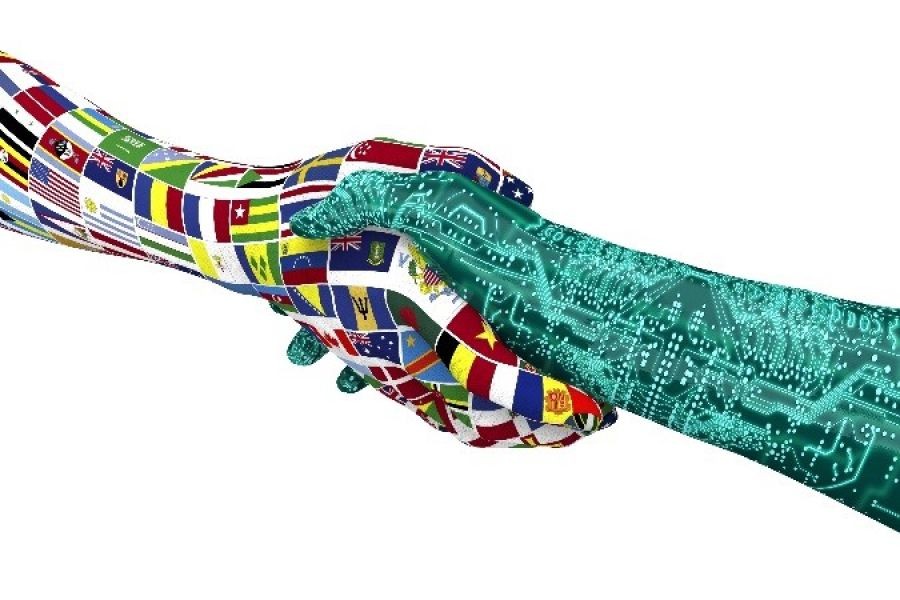Australia has long been known for its diplomatic finesse, employing a pragmatic approach to international relations that emphasizes negotiation, coalition-building, and adherence to international law. As global conflicts continue to rise, the question arises: can Australia's diplomatic efforts play a significant role in reducing global conflict? This article delves into how Australia's diplomatic strategies might influence global peace, examining both the opportunities and challenges inherent in this endeavor.
The Importance of Australia's Diplomatic Role
Australia's position as a middle power in international politics provides it with unique leverage. The nation actively participates in various international forums such as the United Nations and the G20, aiming to influence global policy and promote peace. According to the Australian Bureau of Statistics (ABS), Australia's export-driven economy heavily relies on stable international trade relations, which necessitates a focus on diplomacy to ensure economic stability.
Moreover, Australia's geographic location and strong ties with Asia-Pacific countries position it as a bridge between Eastern and Western political spheres. This strategic positioning offers Australia an opportunity to mediate in regional conflicts and foster diplomatic dialogue. The Reserve Bank of Australia (RBA) underscores the importance of maintaining strong international relationships to support economic growth, which is inextricably linked to global peace.
How Australia Can Influence Global Peace
- Multilateral Engagement: Australia’s participation in multilateral organizations allows it to advocate for conflict resolution and peacekeeping missions. Through its involvement in ASEAN and the Pacific Islands Forum, Australia can influence regional stability.
- Trade and Economic Diplomacy: By promoting fair trade practices and economic partnerships, Australia helps stabilize economies, which can reduce the likelihood of conflict. The Treasury of Australia emphasizes that economic stability is a precursor to peace.
- Humanitarian Aid and Development: Australia's foreign aid program focuses on improving living standards in conflict-prone regions, thereby addressing some of the root causes of conflict.
Case Study: Australia's Role in the ASEAN Region
In the ASEAN region, Australia has played a pivotal role in promoting peace and stability. By fostering economic partnerships and participating in joint security initiatives, Australia has actively contributed to reducing tensions in the South China Sea. This involvement underscores how economic and security cooperation can work hand-in-hand to prevent conflict.
Pros and Cons of Australia's Diplomatic Efforts
While Australia's diplomatic efforts hold promise, they are not without challenges. Here is a balanced evaluation:
Pros:
- Increased Global Influence: Australia's diplomatic initiatives elevate its status on the world stage, allowing it to shape global policies.
- Economic Benefits: Stable international relations foster trade, benefiting Australia's economy by reducing trade barriers and increasing export opportunities.
- Regional Stability: Australia's efforts in the Asia-Pacific region contribute to regional peace, enhancing security and economic prospects.
Cons:
- Resource Intensive: Diplomatic initiatives require significant investment in terms of time, money, and human resources.
- Geopolitical Risks: Aligning with certain countries or policies may strain relationships with others, potentially impacting Australia's trade partnerships.
- Limited Influence: As a middle power, Australia may have limited capacity to influence major global conflicts without support from larger nations.
Myths About Australia's Diplomatic Influence
- Myth: Australia is too small to impact global conflicts.
- Reality: Australia's strategic partnerships and economic influence make it a significant player in global diplomacy.
- Myth: Diplomatic efforts are solely government-driven.
- Reality: Australia's diplomatic success often involves collaboration with businesses and NGOs, broadening its influence.
Future Trends and Predictions
The future of Australia's diplomatic efforts is likely to be shaped by emerging global challenges such as climate change, cybersecurity threats, and shifting power dynamics. According to a report by Deloitte, Australia is expected to play a key role in climate diplomacy, advocating for sustainable practices to mitigate environmental conflicts.
Moreover, the rise of digital diplomacy offers new avenues for Australia to engage with international partners. By leveraging technology, Australia can enhance its diplomatic reach and foster dialogue on a global scale.
Conclusion
Australia's diplomatic efforts have the potential to significantly influence global peace. By leveraging its strategic position, economic strength, and commitment to multilateralism, Australia can contribute to conflict resolution and stability. However, these efforts must be carefully balanced with the nation's economic interests and geopolitical risks. As Australia continues to navigate the complexities of international relations, its role in promoting global peace remains both a challenge and an opportunity.
What’s your take on Australia’s potential to influence global peace? Share your insights in the comments below!
People Also Ask
- How does Australia's diplomacy impact its economy? Australia's diplomacy fosters international trade, which the RBA notes is crucial for economic growth and stability.
- What challenges does Australia face in global diplomacy? Australia faces geopolitical risks and resource constraints, limiting its influence in major conflicts.
Related Search Queries
- Australia's role in global diplomacy
- Impact of Australia's foreign policy
- Australia and ASEAN relations
- Australia's economic diplomacy
- Geopolitical challenges for Australia
- Future of Australian diplomacy
- Australia's peacekeeping efforts
- Global conflict resolution strategies
- Australia's humanitarian aid programs































